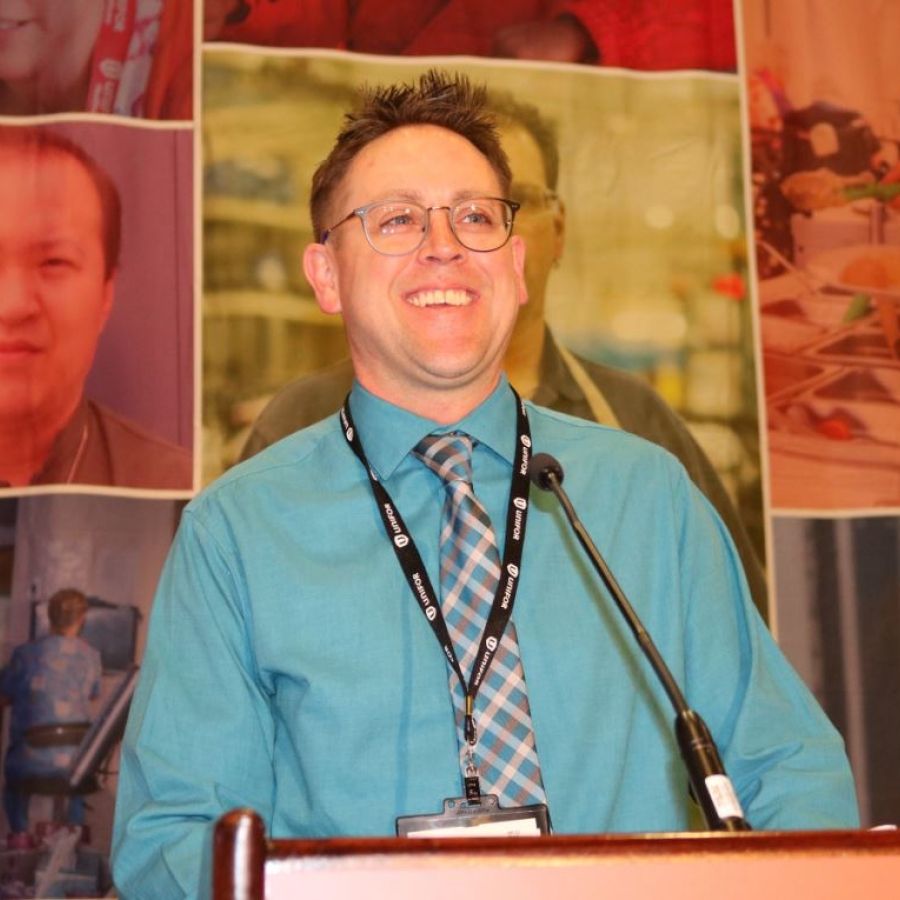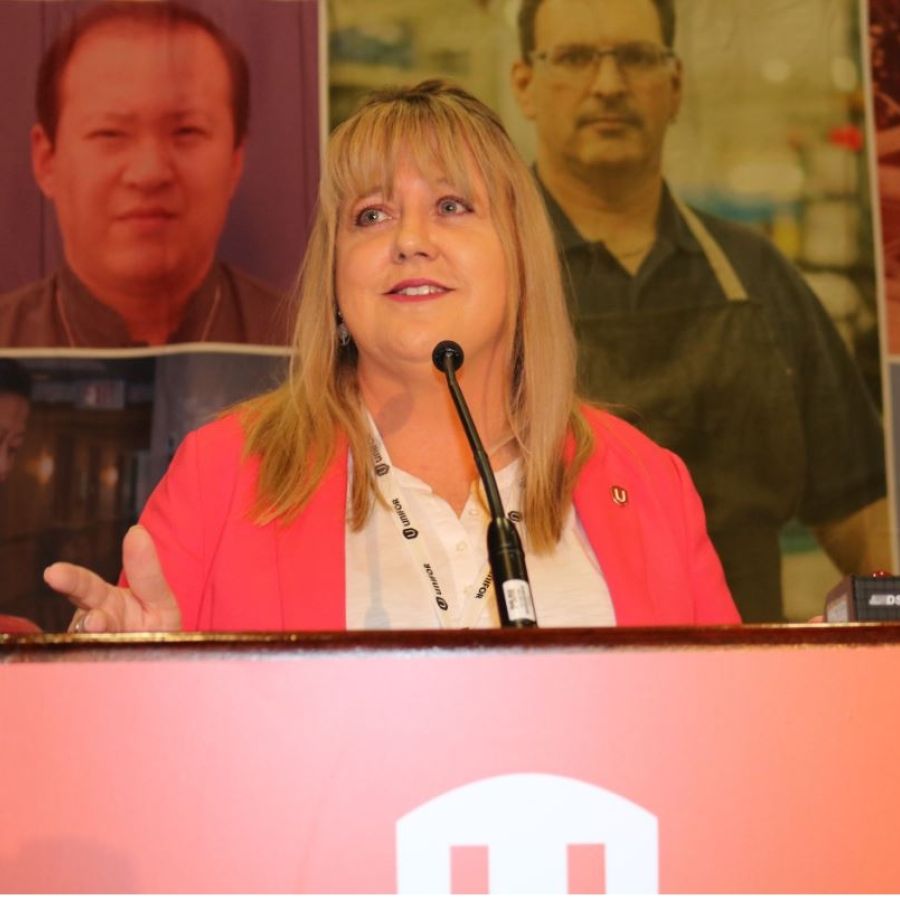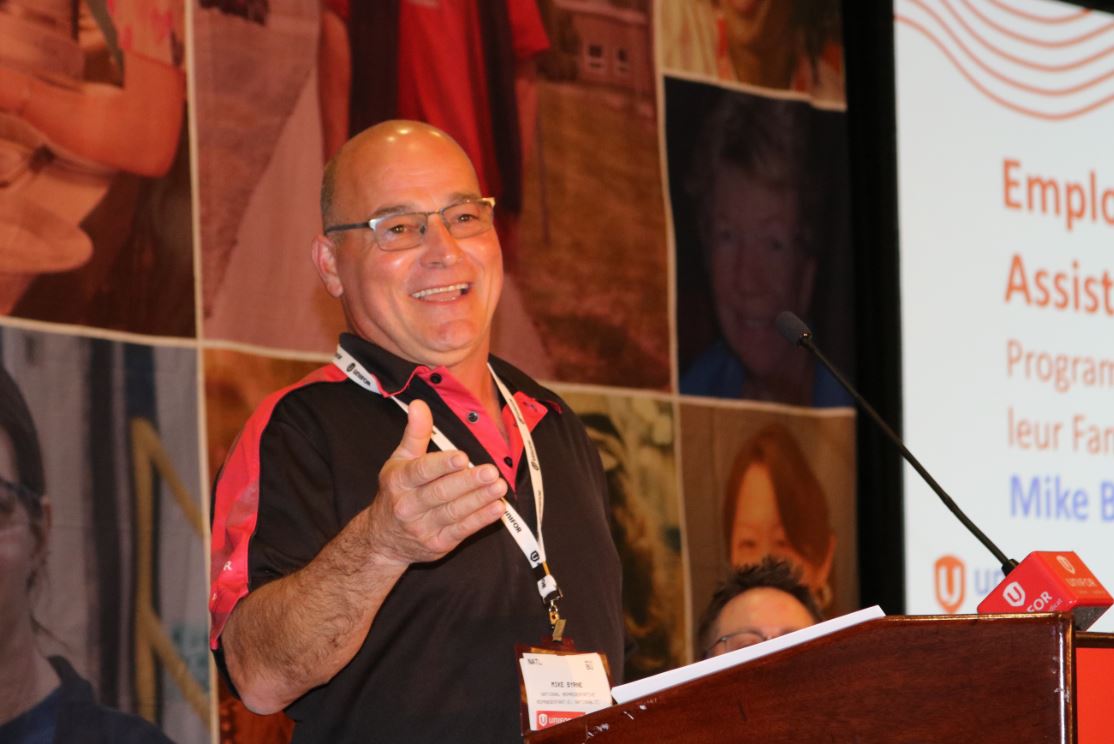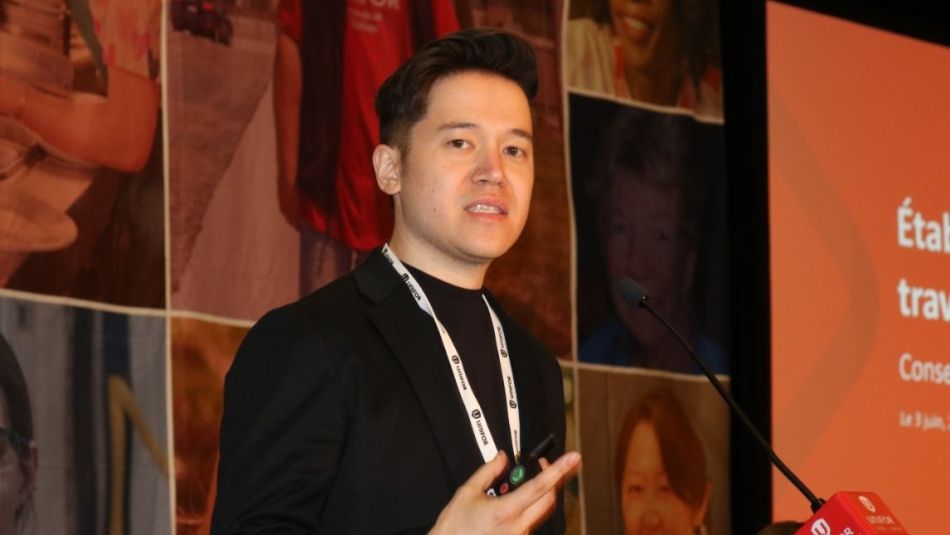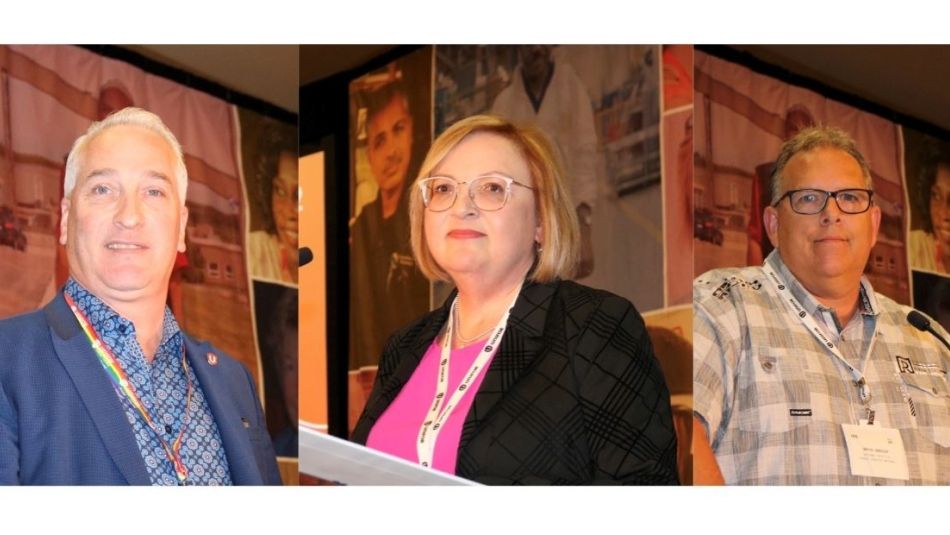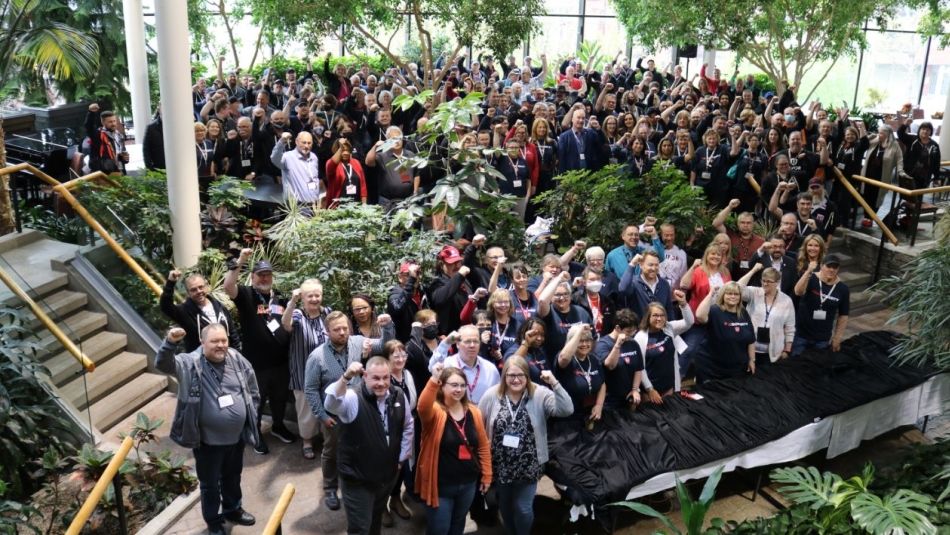
Share
“We must be involved in politics, to speak our shared values as workers and fight against the privatization of services meant for everyone” - Linda MacNeil
Members, staff and leadership were eager to see long-time friends and greet newcomers as Atlantic Regional Council returned to St. John’s, Newfoundland and Labrador. Delegates to the Atlantic Regional Council fell right back into the familiar proceedings, and first-time attendees learned the ropes of the democratic functions of the union.
In his welcoming remarks, Atlantic Regional Council Chair Matt Blois acknowledged the many difficulties members have faced since they last met in person two years ago.
“This terrible pandemic re-enforced the need for strong collective agreements and for persistent advocacy to fight for access to PPE and other workplace protections, to make changes to long-term care to better protect our seniors and workers, and for an improved social safety net with enhanced EI and wage replacement programs,” said Blois.
Atlantic Regional Director Linda MacNeil paid special tribute to health care workers in her address to Council, highlighting their fierce dedication to their profession.
“Health care workers shouldered the heaviest weight of this pandemic,” said MacNeil, . “You were forced to be brave because our governments have been neglecting our health care system for years. We must continue to fight to fund the service that every single one of us relies on for our lives, our wellness, and our futures.”
MacNeil highlighted the years of incredible work by members in long-term care that led to a 23% wage increase for Continuing Care Assistants (CCAs) in Nova Scotia. Delegates watched a video testimonial from CCA Shelly DeViller, who was brought near to tears by the wage announcement.
Celebrating wins through worker power was an important theme during the Council, whether discussing achievements in bargaining or moving public policy forward. It’s clear the pandemic didn’t stop the dynamic work of Unifor members in the Atlantic region and across the country.
“We have to remember, it was just over a year ago that Unifor launched our anti-scab campaign. A campaign we began largely because of what happened in Gander,” said MacNeil. “And today we can take credit for forcing the issue into federal election platforms – a key first step to ensuring this legislation is in place in every jurisdiction in Canada.”
Major challenges also lie ahead for Unifor, including the path to privatization of Canada’s passenger rail service.
“We’ve seen the writing on the wall for years that privatization was on the agenda for VIA Rail,” said Scott Doherty, Executive Assistant to the National President. “But from the U.K. to Australia, the privatization of passenger rail services has failed spectacularly. We can’t have that happen in Canada.”
Members joined in a social media push and learned about how they can participate in the campaign to get VIA Rail back on track.
Time was also dedicated to address the impact the pandemic has had on members. Delegates connected with National Representative Mike Byrne, who spoke about the ways the Employee and Family Assistance Program provides mental health support for members and staff alike.
“I used to take first aid training regularly and, perhaps thankfully, I haven’t had to use it,” said Byrne. “But I tell you, I took mental health first aid training and I was using it within weeks and I continue to field calls and have conversations about mental health nearly every day.”
Byrne reminded local union leaders of the resources available to them from the union, including the Mental Health Matters booklet, and publicly available resources including the nationwide 211 service.
“Call 211 from wherever you are and they can direct you to services in your area based on what you or your members need,” he said.
Taking action on mental health, destigmatizing mental illnesses and working to improve workplace supports were projects the delegates wanted the union to tackle.
Presentations on the climate crisis and its impact on workers contained a plea from Researcher Sune Sandbeck for Local leadership to discuss this issue with their members.
“Climate change is real and is impacting us now. Workers need to have our say so we can be ready for the jobs of the future,” said Sandbeck.
The afternoon session included an opportunity for each of the three declared candidates for National President to speak to delegates about their visions for the future of Unifor.
Lana Payne, Dave Cassidy and Scott Doherty shared personal experiences, their thoughts on priorities, and the opportunities they see for Unifor’s future.


